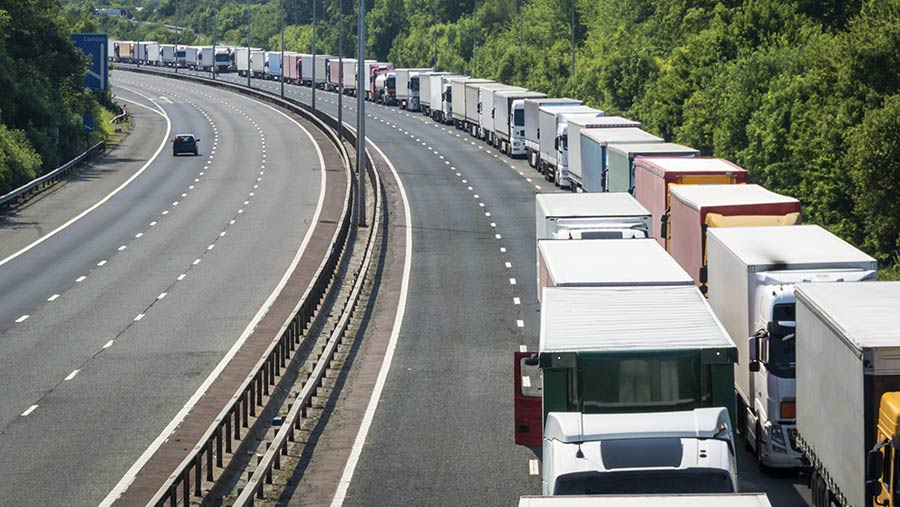Hopes tougher import checks will level up EU-UK trade
 © Adobe Stock
© Adobe Stock Farming groups hope a £14m government plan to ramp up checks on imports of EU products will help address an imbalance of livestock trade since Brexit.
The money will fund 500 new jobs and improve facilities to tighten security at ports around England.
About £8.8m will go to key ports in Kent, with an upgrade to a border checkpoint that will enable officials to make 124,000 separate checks a year.
The remaining £5.2m will be spent on recruitment, equipment and new systems in 19 other local authorities around England.
See also: Covid-19 Q&A: Practical farming queries answered
The new checks will be phased in, with documentary checks on animal products for human consumption starting from 1 April 2021.
From that date animal products will be accompanied by an export health certificate (EHC) and plant-based items will have to hold a phyto-sanitary certificate.
But it won’t be until July that third-country status will be imposed on EU goods.
Extreme measures
The phased rollout is in stark contrast to the extreme measures adopted by EU countries that have hit British farming businesses and livestock prices from 1 January.
National Pig Association policy services officer Lizzie Wilson said the UK had not only chosen to avoid imposing barriers so far, it had also created a fast-track import system for EU food.
The consequences of the policy on farming have been dire, Ms Wilson said.
Cheap Dutch and German pigmeat has been allowed to flood in at prices 30p/kg below UK values.
There are reports of British pigmeat on supermarket shelves being replaced by EU products, Ms Wilson said.
The open door policy has also raised the risk of African swine fever passing into the UK on pork products.
Ms Wilson added that the extra investment in tightening security was good news.
The NFU also welcomed the extra funding. Chief Brexit adviser Gail Soutar said that the UK’s intention to have robust import controls in place was a positive step.
The UK should treat the EU as a third country in the same way we are being treated across the Channel, Ms Soutar said.
If we are to realise the Brexit ambitions of increasing supply of home-grown food, we should not be making it easier for them when they are making it difficult for us, she said.
But Ms Soutar said the union remained concerned over live exports of breeding animals.
About 30,000 breeding animals are exported from the UK each year.
However, there are still no border control posts (BCP) that will accept live exports of large animals on the EU side of the Channel, preventing any movement for the foreseeable future, she said.
Courier delays
A further emerging issue surrounds fast courier trade across the Brexit divide.
“Many farmers rely on importing or exporting packages of foodstuffs or replacement machinery parts in small consignments,” Ms Soutar explained.
Increasingly we are hearing that products are delayed, turned back or arriving with additional charges, she said.
Products of animal origin like cheese or even wool yarns, are being returned by EU officials.
Some of the extra charges on packages are termed additional government duty, effectively a tariff, she suggested.
Farmers who rely on just-in-time management must make sure delays are not going to be hit by these difficulties, Ms Soutar warned.
